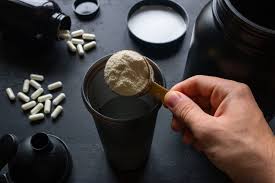
Breaking News
 Iran (So Far Away) - Official Music Video
Iran (So Far Away) - Official Music Video
 COMEX Silver: 21 Days Until 429 Million Ounces of Demand Meets 103 Million Supply. (March Crisis)
COMEX Silver: 21 Days Until 429 Million Ounces of Demand Meets 103 Million Supply. (March Crisis)
 Marjorie Taylor Greene: MAGA Was "All a Lie," "Isn't Really About America or the
Marjorie Taylor Greene: MAGA Was "All a Lie," "Isn't Really About America or the
 Why America's Two-Party System Will Never Threaten the True Political Elites
Why America's Two-Party System Will Never Threaten the True Political Elites
Top Tech News
 How underwater 3D printing could soon transform maritime construction
How underwater 3D printing could soon transform maritime construction
 Smart soldering iron packs a camera to show you what you're doing
Smart soldering iron packs a camera to show you what you're doing
 Look, no hands: Flying umbrella follows user through the rain
Look, no hands: Flying umbrella follows user through the rain
 Critical Linux Warning: 800,000 Devices Are EXPOSED
Critical Linux Warning: 800,000 Devices Are EXPOSED
 'Brave New World': IVF Company's Eugenics Tool Lets Couples Pick 'Best' Baby, Di
'Brave New World': IVF Company's Eugenics Tool Lets Couples Pick 'Best' Baby, Di
 The smartphone just fired a warning shot at the camera industry.
The smartphone just fired a warning shot at the camera industry.
 A revolutionary breakthrough in dental science is changing how we fight tooth decay
A revolutionary breakthrough in dental science is changing how we fight tooth decay
 Docan Energy "Panda": 32kWh for $2,530!
Docan Energy "Panda": 32kWh for $2,530!
 Rugged phone with multi-day battery life doubles as a 1080p projector
Rugged phone with multi-day battery life doubles as a 1080p projector
 4 Sisters Invent Electric Tractor with Mom and Dad and it's Selling in 5 Countries
4 Sisters Invent Electric Tractor with Mom and Dad and it's Selling in 5 Countries
What Every Gym-Goer Should Know About Pre-Workout Supplements

Across the country, gym-goers scoop powder into shaker bottles, chasing a last burst of energy to fuel evening workouts. Pre-workout supplements, called "pre-workouts," promise a better workout through energy-enhancing ingredients.
Once the domain of bodybuilders, pre-workouts have gone mainstream, driven by social media, flashy marketing, and late-night training trends. Nearly 80 percent of regular gym-goers now use them, according to industry data.
As casual lifters join elite athletes in using pre-workout supplements, a more complicated picture emerges. The gains may be real, but are they worth the trade-offs?
What Are Pre-Workouts?
Amid neon tubs boasting "Explosive Energy," "Insane Focus," and "Pump Booster," it's not always clear what pre-workouts actually are.
Pre-workouts are powdered supplements mixed with water and taken before exercise. They offer a jolt of energy, sharper focus, and more stamina—a caffeinated cocktail for the fitness crowd.
"It is often recommended to ingest the supplement 30–60 minutes before exercise with the goal of improving the quality of your workout—i.e., increased energy, focus, delayed sensations of fatigue, [and] improvements in muscular endurance or strength," Andrew Jagim, a sports medicine researcher at Mayo Clinic Health System, told The Epoch Times.
With consistent use and structured training, he noted, pre-workouts may contribute to greater gains in strength and muscle mass compared to training alone.
While pre-workouts may enhance energy and endurance, they aren't a magic bullet.
"Pre-workout is not a shortcut to success," Dr. Gabrielle Lyon, a physician specializing in muscle-centric medicine, told The Epoch Times. "It's not a replacement for sleep. It's not a stand-in for strategic nutrition or consistent training. If your baseline isn't solid, no supplement will carry you through."
What's in the Scoop?
Most pre-workouts pack a mix of performance-boosting ingredients—often with 15 or more per tub. Caffeine leads, providing energy. Beta-alanine delays fatigue. Creatine boosts strength and power. Vasodilators like citrulline and nitrate improve blood flow and fuel the post-lift "pump." Some formulas add vitamins like B-complex or C. Others include nootropics—compounds believed to enhance mental function—like tyrosine or alpha-GPC, aimed at sharpening focus and improving mood.
However, there's no standard formula, leaving consumers guessing amid a sea of options. The most common ingredients include:
Caffeine—Well-studied and effective: Caffeine is the most studied and most reliable pre-workout ingredient. According to the International Society of Sports Nutrition, it can offer small to moderate boosts in everything from endurance and strength to sprinting and jumping.



